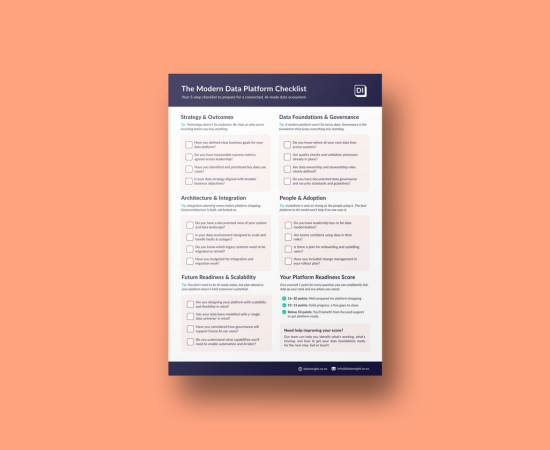Data-driven decision-making sounds great in theory. But what happens when that theory does not match reality?
Many global consultancies and overseas experts assume that what works in the US or Europe will work just as well in New Zealand. The reality is different. The New Zealand market is smaller, more nuanced, and operates with its own dynamics. Applying large-scale global models without local understanding often leads to unrealistic projections, costly missteps, and strategies that miss the mark.
Here is why local expertise matters when building successful data strategies.

Why global insights do not always translate
Global best practices are appealing. They offer tested frameworks and success stories from larger, mature markets. For organisations looking to move quickly, it can be tempting to assume these models will work everywhere.
But many global frameworks are built on assumptions that do not hold true across different regions.
They often assume customer behaviour, competitive landscapes, and market size are consistent worldwide. What might be a billion-dollar opportunity in the US may only represent a small niche in New Zealand. Strategies designed for scale do not always adapt well to more compact, relationship-driven, or regulated markets.
They also neglect to account for local regulations and cultural differences that are integral when implementing them with local teams and ways of working.
Without careful adjustment, global strategies risk delivering plans that are either too complex, too expensive, or too disconnected from local reality to succeed.
The risks of applying global strategies without adaptation
When strategies built overseas are applied directly, they often fail to account for critical differences:
- Local regulations: Compliance and legal frameworks vary significantly between countries
- Customer expectations: Cultural nuances shape how customers behave, what they value, and how they expect to engage
- Economic conditions: Market maturity, purchasing power, and access to infrastructure can shift what is viable
- Team Culture: Kiwi work culture and attitudes are vital to include in your plans. Without your teams on-board any strategy will fail to execute
- Exposure to geopolitics: With dynamic global politics, any reliance on software, systems, and services that are potentially exposed to trade wars or dynamic foreign regulation must be considered
We have seen international strategies rolled out in New Zealand without localisation, only to underperform or fail entirely.
Organisations end up investing in solutions that do not resonate, overlooking better opportunities that fit the local context, or eroding customer trust by seeming out of touch. In some cases, projects are abandoned halfway through when it becomes clear the strategy does not align with market needs.
The cost is not just financial. It is time lost, internal confidence shaken, and opportunities missed while competitors adapt more effectively.
Why Local Expertise Changes Everything
Local knowledge does not just tweak a global strategy. It reshapes it fundamentally to fit the market.
Instead of launching an enterprise-wide platform designed for a million-user customer base, a New Zealand business might focus on a phased deployment that prioritises key regions or partnerships first. Instead of applying a rigid data governance framework built for global financial institutions, a localised model might focus on agility and customer trust.
Understanding the local regulatory environment, cultural expectations, and economic landscape allows organisations to make smarter trade-offs, prioritise the right initiatives, and deliver results faster.
Global ideas are valuable, but without adaptation, they remain disconnected from real-world impact.
Balancing Global Trends with Local Reality
Staying competitive today requires more than following global trends. It requires leveraging global developments but applying those learnings in the context of the local market.
The best data strategies do not reject global thinking. They adapt it thoughtfully.
Successful organisations use global insights as a foundation but combine them with local expertise to drive faster, more effective decisions. They do not simply copy what works elsewhere. They adjust for what works here.
It is not about choosing between global or local. It is about knowing how to bridge both worlds to deliver meaningful outcomes.
Local Expertise Makes all the Difference
Not all best practices are best for your market.
Organisations that succeed do so by tailoring their strategies to fit their environment, not just adopting frameworks built for other contexts. In a fast-changing world, the ability to adapt quickly and stay connected to local realities is what keeps businesses ahead.








.png)